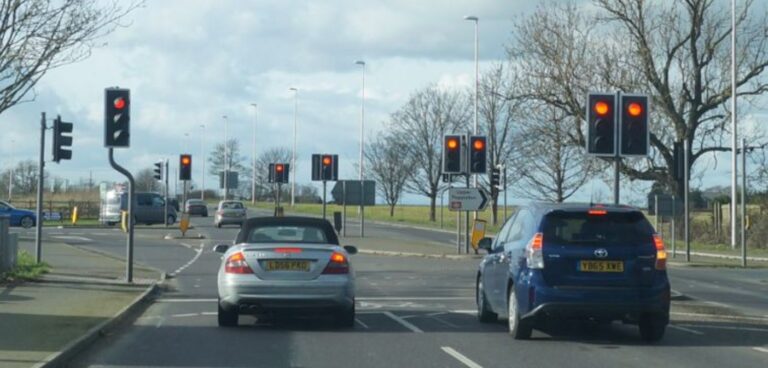The 39 local authorities across England who received grants of either £250,000 or £500,000 from the UK Department for Transport (DfT) to improve traffic signals under the £15m Traffic Signals Challenge have reported on the work they carried out to share best practice and ensure that any future funding is spent in the most efficient way.
Provided by the DfT as additional local roads and integrated transport funding, and managed through the Transport Technology Forum (TTF) with support from the Local Government Roads Innovation Group (LCRIG), the grants were designed to help councils improve traffic signals to tackle road user safety, air pollution and congestion.
For example, in the Tees Valley, a £500,000 grant has been spent on upgrading installations that in some cases were more than 20 years old, as well replacing in-road loops with radar detectors, improving connectivity, air quality monitoring and car park management and using AI to better manage buses.
“Historically it has been difficult to fund our assets, so this grant has made sure that we can obtain technology we wouldn’t have otherwise been able to afford,” sais Alan Madgwick, principal engineer at Middlesbrough Council, which is running the project for Tees Valley Combined Authority.
“It’s allowed us to look at AI, which we couldn’t have done without this funding, and enabled us to get more real-time monitoring thanks to better connectivity.
“The money has given us the opportunity to use technologies which would have been difficult to get if we had had to use traditional funding methods.”
Hull used its £500,000 grant funding to refurbish ageing equipment, upgrade communications and order nearly 100 ACU processors for existing PTC-1 traffic controllers.
It too has added in above ground detection to monitor cycling and introduced new cycle-friendly traffic light phasing.
The cash has also funded investment in understanding data and the building of a digital twin that will allow the authority to target maintenance, predict burnouts, and monitor vehicular, cycle, and pedestrian patterns across the city.
“Most of the work required to identify and prioritise how we would spend the funds had been done for the bid purposes, which allowed us to get going on improvements quickly,” said Sean Higgins, intelligent transport systems manager at Hull City Council.
“It has really been a case of using what we knew to plan and implement a vast replacement scheme of our ageing and inefficient or inappropriate ITS equipment, which we always wanted to do, but could not have funded without this extra grant.”
At Kirklees Council in West Yorkshire, a £250,000 maintenance grant has been used to fund a programme of refurbishments to replace the obsolete controller stock, and also to invest in AI to help manage the existing assets.
“This round of funding has enabled us to start upgrading our oldest traffic signal installations, whilst also allowing some investment in AI technologies to make better use of our existing traffic signal assets” said Louise Hewlett, group engineer and UTMC team manager at Kirklees Council. “
“In November 2021, the Huddersfield AI Research Centre – a joint initiative between Kirklees Council, Kirklees-based Simplifai Systems and the University of Huddersfield – was opened.
“This funding has allowed us to use AI systems to improve the maintenance and operation of our existing traffic signal systems.”





